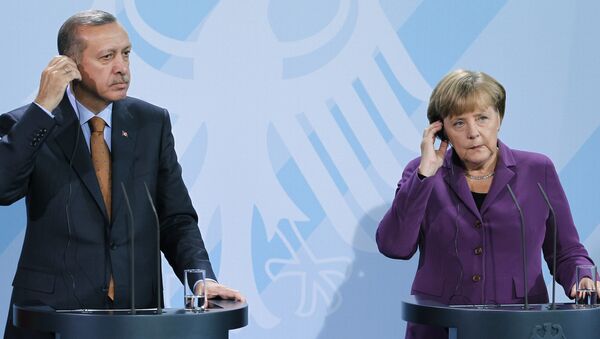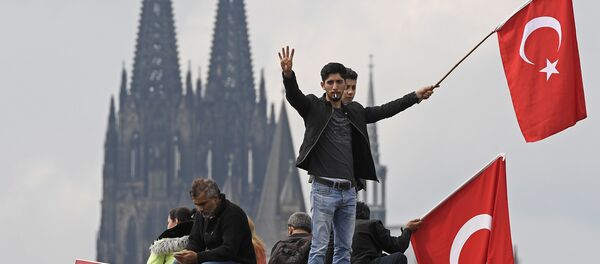On Saturday, Berlin announced that it was lifting the economic sanctions that it slapped on Ankara in July 2017 in response to the detention of a German human rights campaigner and five other activists, including the head of Amnesty International in Turkey.
The German economy ministry said that those sanctions will not be implemented in the next fiscal year.
Berlin also eased restraints on travel to Ankara, with the foreign ministry removing a warning on its website about its nationals facing a high risk of arrest when visiting Turkey.
Those decisions came days after Ankara lifted the state of emergency that it imposed in wake of the failed coup of July 15, 2016.
On Friday, the Netherlands announced that it was formally normalizing relations with Turkey after diplomatic quarrel that began with attempts by politicians in the Turkish government to campaign in the country during a 2017 referendum.
READ MORE: Turkey Ready to Work on Improvement of Relations With Germany — Foreign Minister
Turkish-EU relations have been strained since the failed coup against Turkish President Erdogan in 2016 and the anti-Gulen operation that followed, resulting in the arrest of some 50,000 people and the dismissal of 100,000 others.
Islamic cleric Fethullah Gulen is accused by Ankara of having organized the 2016 coup attempt in the country. Gulen, who is currently residing in the United States, has denied involvement in the botched coup attempt.



